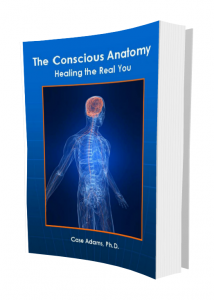Cognitive Behavioral Therapy Beats Drugs for Autism
Autism or autism spectrum disorders – which include related symptoms of anxiety and depression – is described as a disorder that makes communication with others difficult. It has been described as a brain or nervous system disorder but also a learned behavioral disorder. For that reason, behavioral therapy is better than drug therapy – with far less side effects and a reduced risk of addiction.
In this article
Autism therapy studied
Researchers from UCLA’s Department of Education have confirmed that cognitive behavioral therapy beats typical drug treatment for autism prescribed by conventional medicine.
The researchers tested 13 children with autism who were between seven and 11 years old. The researchers randomly split the children into two groups. One group was given 32 sessions of cognitive behavioral therapy or conventional psychosocial treatment for four months.
The children were tested for social behavior with others before and after the treatments began.
Conventional therapy includes behavior, speech and physical therapy along with anti-anxiety and anti-depressant medications. These include selective serotonin reuptake inhibitors (SSRIs) such as sertraline, citalopram and fluoxetine.
These drugs have numerous side effects, which include nausea, nervousness, dizziness, drowsiness, headaches, insomnia, vomiting and others.
The researchers found that after the four months of respective treatments, over 68% of the children in the cognitive behavioral therapy had “positive or appropriate” interaction with other children. Only 25% of those given conventional treatment had “positive or appropriate” interaction with their peers in comparison.
What is cognitive behavioral therapy?
Cognitive behavioral therapy typically addresses a child’s goals as well as emotions and real-time dealings with others. The therapy works with the child’s belief systems regarding self-identity and relationships with peers and parents. Often there are excessive negative or catastrophic feelings that are addressed by cognitive behavioral training. While changing ones thinking was part of the “Cognitive Therapy” and “Rational Emotive Therapy” protocols developed by Dr. Aaron Beck and Albert Ellis respectively in the 1970s, revised behavioral training focuses more upon real-time interaction with others and current thoughts and feelings.
This includes acquiring new skills for interaction with others, and then practicing those skills and fixing those newly acquired interaction skills.
The researchers commented on the therapy’s benefits:
“Cognitive behavioral therapy has been shown to be an empirically supported treatment for typically developing children with anxiety issues. The most commonly used techniques to treat anxiety in children are exposure, relaxation, cognitive restructuring, and modeling in that order.”
Other studies show cognitive behavioral therapy’s efficacy
While this study tested cognitive behavioral therapy against conventional therapy, this is not the first study that has shown tremendous success for autism among children.
Researchers from the University of South Florida studied 45 children between seven and 11 years old, and gave them either weekly treatments of cognitive behavioral therapy for four months or conventional autism treatment. This study found that 75% of the cognitive behavioral therapy children improved from the treatment while only 14% of the conventionally-treated children improved after four months of treatment.
One of the larger improvements noted by the researchers in the cognitive behavioral therapy group was their reduction in anxiety.
A few other studies have shown similar positive results for cognitive behavioral therapy in autism over the past four years.
Play and imitation improve autism related symptoms
Another recent study – from Sweden’s University of Gothenburg – found that children who learn to imitate their parents and others as infants tend to have a reduced risk of autistic symptoms later. The study followed 34 children with autism spectrum disorders.
A study we reported on from the University of Sydney found that playing decreases symptoms of ADHD – attention-deficit hyperactivity disorder. The study of 28 children found that play between ADHD children and non-ADHD children significantly reduced their ADHD symptoms. ADHD often occurs with autism.
Are drugs really needed for autism?
The research certainly supports other therapies outside of giving prescription drugs to children for disorders related to behavior in children – especially given their various adverse side effects and the higher risk of addictive behavior among those who were given drugs as children.
The CDC reports that one out of five children take at least one prescription medication – from a 2007-2008 survey. In 2008, Americans spent more than twice the amount of money on prescriptive medications than they spent ten years earlier.
REFERENCES:
Wood JJ, Fujii C, Renno P, Van Dyke M. Impact of Cognitive Behavioral Therapy on Observed Autism Symptom Severity During School Recess: A Preliminary Randomized, Controlled Trial. J Autism Dev Disord. 2014 Mar 27.
Storch EA, Arnold EB, Lewin AB, Nadeau JM, Jones AM, De Nadai AS, Jane Mutch P, Selles RR, Ung D, Murphy TK. The effect of cognitive-behavioral therapy versus treatment as usual for anxiety in children with autism spectrum disorders: a randomized, controlled trial. J Am Acad Child Adolesc Psychiatry. 2013 Feb;52(2):132-142.e2. doi: 10.1016/j.jaac.2012.11.007.
McGillivray JA, Evert HT. Group Cognitive Behavioural Therapy Program Shows Potential in Reducing Symptoms of Depression and Stress Among Young People with ASD. J Autism Dev Disord. 2014 Mar 15.
Miniscalco C, Rudling M, Råstam M, Gillberg C, Johnels JA. Imitation (rather than core language) predicts pragmatic development in young children with ASD: a preliminary longitudinal study using CDI parental reports. Int J Lang Commun Disord. 2014 Mar 31. doi: 10.1111/1460-6984.12085.
Gu Q, Dillon CF, Burt VL. Prescription Drug Use Continues to Increase: US Prescription Drug Data for 2007-2008. NCHS/CDC. Sept. 2010. http://www.cdc.gov/nchs/data/databriefs/db42.pdf
















